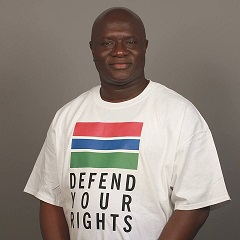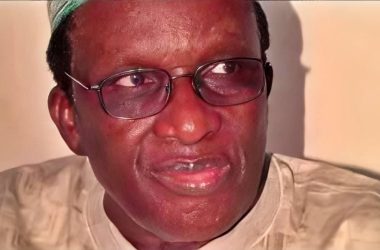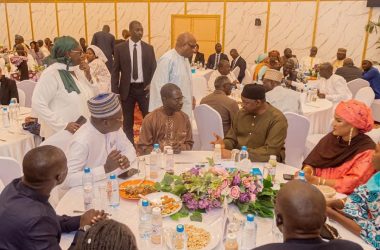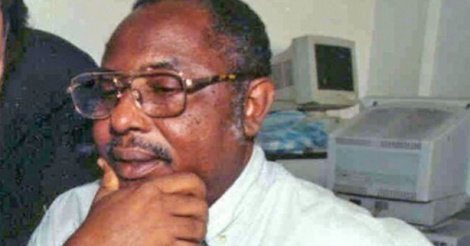
There is a widespread misconception in Africa and the Gambia in particular that after election, citizens should forget about politics and work together for national development.
It is common to hear politicians claim that politics should be set aside after Election Day as if politics is a commodity or a one-time activity for one day. Therefore one of the fundamental reasons why there is poor leadership and bad governance in Africa is because of these huge misconceptions about politics.
The effect of this misconception is that it disempowers the people while empowering those in power simply because the people disengage. This is why those that are in power are always the very ones who spread this misconception. The correct understand should therefore be that politics actually starts on the day after elections. This is the time when the citizens must begin to engage and hold the newly elected government and officials to account to ensure that they deliver according to their campaign promises and manifesto for the rest of their term.
The political dispensation in the Gambia is democracy. This is the system where all citizens participate through various decision-making processes and institutions for the efficient management of the affairs and resources of the country. In this environment, some are right holders as citizens, while others are duty bearers as public servants.
The duty bearers or public servants are provided with resources from our taxes to perform functions that are aimed at promoting and protecting our human rights and satisfying our needs through the provision of opportunities, goods and services. Public servants are expected to refrain from the misuse of public resources and abuse of public office that will injure the rights and welfare of citizens. Democracy creates a checks and balances system otherwise called the rule of law.
For that matter, democracy therefore is a daily battle to ensure that duty bearers perform their functions efficiently and effectively. It is a daily battle to ensure that there is no abuse of power or misuse of public resources by public servants. It is a daily battle to ensure that when human rights are violated or there is abuse of power then there is redress or accountability immediately and in full. Democracy requires transparency to ensure that all decision and actions of duty bearers are exposed to the public to ascertain that there is no abuse or violation.
In light of the above, politics is therefore a daily activity of a person and society. This is because through politics society determines the cost of bread or the creation of jobs. It is within politics that society determines the cost of school fees or fares. It is politics that determines if there will be electricity or good roads or not. It is politics that determines whether citizens will have security in their society or not. It is politics that determines if families will have breakfast, lunch and dinner or not. Politics determines whether citizens will be free or oppressed.
The cost of bread in your street corner shop is determined by the kind of president and parliament you have elected. This is because it is the Executive and the Parliament that sets the laws on taxation and overall management of the economy that eventually determines the cost of flour, the operation of a bakery and the transportation of bread to shops in the community. It is the government that sets fuel prices, electricity tariffs, and taxes and also builds the infrastructure necessary for movement of goods and people that ultimately affect prices.
Hence the kind of economy a country has and the cost of goods and services in that country are all determined by the kind and quality of leaders and institutions in that country. If there is a leadership that is efficient and understands how to build a viable economy then the provision of goods and services will be affordable, efficient and of high quality. If the decision-making process is open, participatory and accountable it means citizens can influence policies and institutions to ensure better economic management and well being. But when there is no such leadership this is when such a society will remain poor. Since independence the Gambia has been poor because there has been no such visionary and efficient leadership.
But the reason why there is also no such visionary and effective leadership is because the masses of the Gambia have not been able to hold our governments and leaders to account. Our level of participation has not been qualitative enough. It is one thing to have many political parties and many politicians with a high level of participation by supporters. But so long as such participation is not qualitative in terms of how those citizens understand the role and function of a president and government then there will be so much activity but with little effect. This has been the tragedy in the Gambia and Africa since independence.
Citizens further disempower themselves when they hold that politics is not for all times. It is even more insidious when citizens do not know their rights and duties as citizens. This is why I always expand the proclamation of Thomas Sankara to say that a citizen without political education is either a criminal or a victim. This is because when a citizen lacks political awareness, as a public servant he or she can abuse his office by being corrupt or violate human rights. On the other hand if he is a mere private citizen he can aid and abet a bad leader unknowingly or merely fails to stand up to defend his rights as a citizen. Thus as a public servant such a citizen is a criminal, while as a private citizen he is a victim.
Therefore Gambians and Africans must rise up to understand that democracy is a daily battle, to win or lose every day. If we win the battle on any day then we enjoy the protection of our rights and fulfillment of our needs manifested by the provision of opportunities and services by public and private institutions and the prevalence of transparency and accountability. But if we lose the battle any day then we face rights violations, corruption, abuse of power and oppression.
God Bless The Gambia.





Hello Bro Madi Jorbateh. I have been following your write ups and must admit that I appreciate them ALL. They are of the highest clarity, honesty, and very educative and more over written in simple english easy to read for the least learned person to understand the message. Because of your bright articles I personally stop writing opinion articles because you represent my thoughts fully well.
Keep it coming Brother Madi we certainly share the same views and orientation.
Stay Blessed.
Pa Njie Girigara
Dear Mr Jobarteh
I am a British national living in the Gambia for a few years, i experienced living through all the uncertainty of the last election in 2016, but since the previous regime has left office at state house we keep hearing conflicting statements as to where the current government resides if not state house, how do citizens etc contact the various ministries or ministers for information, perhaps you could enlighten me thank you.
Madi, I think every patriotic Gambian will love to read your educative comments. Your comments are so vital that they serve as civic education to readers who fall short of enlightenment. Yet you shall agree with me that a lot of Africans especially Gambians still do not differentiate a dictatorial leadership from that of a Democratically elected one.Thus it is common to hear the ordinary person utter such remarks as“Mansa Keh lem sembo bala“in Mandinka and in Fulla;“Ko lamndo mbo jogi dolleh.“A lot of our citizens hold that elected Presidents are the type of Foday Kaba Dumbuya or Musa Molloh. The recent retreat of parliamentarians at a local hotel is very inspiring. I say bravo to the Speaker of the National assembly for her brilliant foresight. Keep up the good job Madi and Thank you.